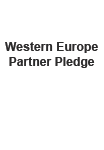Although companies no longer question the value of information in making intelligent decisions, market research is still one of the least valued knowledge gathering techniques. However, not carrying out a market research can lead to unexpected results. We explain what market research is and why companies should not skip it.

When we launch a product or service or a digital marketing campaign, we need information that helps us improve our approach and predict how it will be received. For example, when launching a new product or service, companies often study the market in which it will be included and its target audience.
Of course, data collection and data analysis are essential. However, many organisations ignore a technique that is just as important as analysing your data: market research, the too often forgotten business intelligence technique.
What is market research?
Market research is a knowledge-gathering technique oriented towards assessing the impact of new business initiatives. It is usually conducted before launching a new product or service, a campaign or any other type of innovative strategy. However, it is also very useful for customer segmentation, identifying a brand's positioning, etc.
As its name suggests, it consists of studying and analysing the target market in which our offer will be included. It is a research method that includes both quantitative and qualitative techniques and is based on direct interaction with potential consumers through in-depth interviews, surveys, focus groups, etc.
Its main purpose is to explore the market for a given product or service in order to predict the impact it will have, but it can also be used for creating buyer personas, defining customer segments or evaluating the reception of an advertising campaign, for example.
The strength of market research is that it provides information and insights that other quantitative techniques —data analysis, customer segmentation, etc.— do not achieve. This makes of market research the best way to enrich the information we already gathered analysing customer data and, in addition, it helps us to understand why our clients behave the way they do.
While data is very useful to find out how our customers behave, market research helps us to understand why they behave the way they do.
Types of market research
Market research includes both qualitative and quantitative techniques that can be applied on their own or we can combine them.
Quantitative techniques
- Surveys: According to Hotjar, surveys are the most widely used market research technique, probably because they are the least time-consuming technique as well as the fastest providing results. Market research surveys can include both open-ended and closed-ended questions. It is the ideal way to find out the opinion of a large number of people in a short period of time. Nowadays this technique is mostly applied through online surveys and the market is full of tools specialised in automating the process such as Google Forms or SurveyMonkey, for example.
Qualitative techniques
- In-depth interviews: Interviewing several of our potential or target customers can provide us with a level of information that no other technique can match and it help us to empathise with our customers. However, interviews require a great deal of time, not only for their development, but also preparation and research time. When conducting an interview, it is essential to select the right subjects.
- Focus groups: A focus group consists of bringing together a group of people —usually representatives of our customer segments— and providing them with questions, discussion topics or group dynamics so that they can exchange opinions while being guided by a moderator. This type of activity is very useful for obtaining information that is probably impossible to obtain in any other way. However, it is one of the most dangerous and difficult techniques to carry out. A focus group often requires an expert, otherwise it is very easy to make mistakes that will affect the results. For example, one of the individuals may have a dominant personality and can influence the other's opinions.
- Ethnographic observation: Observation sessions consist of observing, analysing and taking note of the behaviour or reaction of our customers when they interact with our products or services —or those of our competitors—, or one of our touch points. This technique allows us to observe customers in a natural environment and without being conditioned by any external factor. However, it has its limits. Obviously, we cannot read the minds of those we observe and, therefore, it is often advisable to combine this technique with surveys or interviews.
- Co-creation: These are research techniques that allow companies to create new initiatives together with their customers, involving them in the creation process so that they cat as a guide for the company. There are already platforms dedicated to business co-creation such as Recollective, Mesh or Mindsumo.
Due to the amount of work and expertise that these techniques require, it is very common for organisations to outsource them.
Are you interested in market research? At Kale we are specialists in market research, we can help you!
Why do companies not research their markets?
There are several reasons why an organisation may decide to not carry out a market research. For one thing, market research is a much more time-consuming process than data analysis or other types of knowledge gathering strategies. On the other hand, market research tends to pay off or translate into increased revenues in the long term, which makes some companies prefer to opt for more immediate techniques.
In addition, some people think that market research is simply unnecessary since data analysis alone provides all the information they need. However, this is not true. Forbes considers market research to be "the most critical piece of a marketing launch." Let's see why.
Why can't you skip market research?
As we have already mentioned, market research is the least popular technique for obtaining knowledge because it requires more time and money than other methods. However, it is a great opportunity to get to know our customers better and obtain insights that data analysis will not provide.
In 2013, the US company Target wanted to expand its market to Canada. Despite having to get into a completely unknown market, they decided not to conduct market research, trusting that customers in Canada would recognise the brand's name. They spent millions of dollars on marketing and advertising, but did not bother to study the Canadian market in depth. As Target had predicted, customers in Canada already knew the brand. However, when they went to the stores they were confronted with prices and products that were different from those in the US. The story ends with Target having to close all their stores in Canada in less than two years. The lesson is clear: ignoring market research is not a good idea.
Market research is the best way to ensure the success of the strategies and initiatives we create and helps us to find out what customers want and need in order to create offers that better meet their needs.
On the other hand, it is useful for stock planning. If we know what customers want, we can forecast our production and sales much better.
Finally, market research provides an important competitive advantage. Comparative studies are key when it comes to establishing commercial or data-driven marketing strategies that help us to position ourselves above our competitors.
Don't forget Target. If you are thinking of skipping market research, keep in mind that your competitors probably won't. Will you let them have that competitive advantage?





